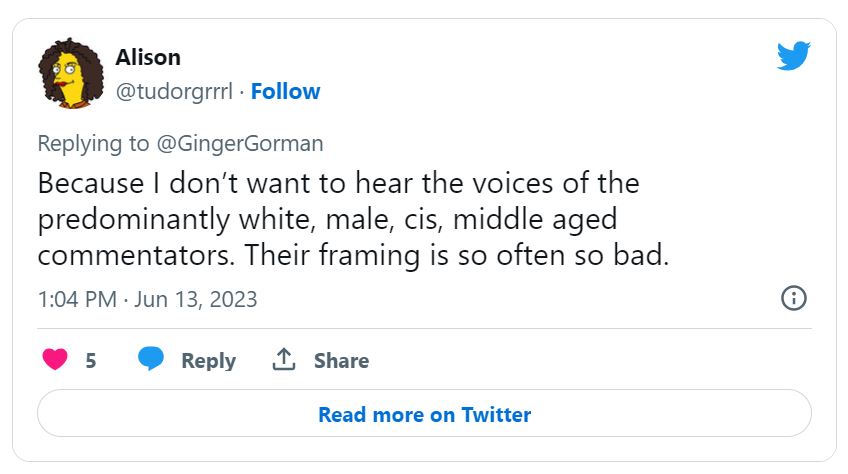Ideas, Progress & the Future
DNR 2023: Women’s interest in news hits a record low
This October will mark 11 years since Julia Gillard’s address to parliament calling out sexism and misogyny from then Leader of the Opposition, Tony Abbott. In reflecting on that period, Guardian Australia’s Katharine Murphy discussed the ‘toxicity’ of public discourse directed at Gillard, particularly from ‘some Neanderthal media figures’. In the years since, the press has struggled to get it right when covering women and women’s issues.
Despite the passage of time, and considerable efforts on the part of women journalists, the news industry in Australia continues to flounder. A recent study found that only 47 per cent of women say they think news covers women fairly and provides enough coverage of issues relevant to women.
Released today, new findings from a survey of 2,025 Australians suggest that the industry may be facing something of a reckoning. The Digital News Report: Australia 2023 presents findings from a longitudinal study of Australian news consumers and is published annually by the News and Media Research Centre at the University of Canberra.
The data show that women’s interest in news has hit a record low.
Only 43 per cent of women say they are extremely or very interested in news compared to 62 per cent of men. While women have over time expressed lower interest in news than men, the decline in women’s interest has been much more pronounced than for men. The proportion of women reporting high interest in news has fallen by 16 percentage points since 2017, compared to only six percentage points for men.
Women are avoiding news more frequently, with 72 per cent saying they often, sometimes, or occasionally avoid news compared to 67 per cent of men. They are more likely than men to say they are avoiding topics such as sports and national politics. Findings from previous surveys suggest the top reasons women avoid news are because there is too much coverage of politics or coronavirus (51 per cent), and that the news has a negative effect on their mood (47 per cent).
Perhaps women want more good news. When asked about what types of news they were interested in 55 per cent of women say they prefer positive news stories, and 46 per cent say they want news that suggests solutions rather than pointing out problems.
Women’s trust in news is also in decline. This year only 39 per cent say they trust the news in Australia generally, compared to 48 per cent of men. While trust in news among men increased this year, women’s trust in news fell by three percentage points, creating a nine percentage point gap. This gap is the widest globally, with the average trust among 33 countries surveyed being 41 per cent for men and 40 per cent for women.
Troublingly, the reasons why women are switching off from news seem to have changed little over the years.
News – particularly political news – can often seem relentlessly negative or fixated on outrage and scandal. In this context, women do not see themselves and their viewpoints as being fairly and adequately represented. As our previous research shows, only 40 per cent of women say their interests are balanced with the interests of men in news, and only 39 per cent say the news is impartial and unbiased when reporting on women.
Some of this is possibly due to a failure within the industry to adequately support women journalists. In our survey of journalists, 58 per cent of women journalists said there were barriers to career progression in their news organisation because of their gender. And 47 per cent said they have faced discrimination in their newsroom because of their gender.
Eleven years may have passed since Gillard’s misogyny speech, but newsrooms continue to be a toxic place for many – particularly young women journalists.
In such an environment women talk about the difficulty of being heard and the pressure to stick to reporting from an impartial perspective that precludes their own insights as professional women.
Senior leadership continues to be dominated by men, and the attitude that women journalists need to ‘put up or shut up’ appears to be pervasive.
BroadAgenda editor Ginger Gorman asked her female Twitter followers why they were turning off the news. Here are a couple of responses below:
As the data from the Digital News report: Australia 2023 show, female audiences are abandoning news in droves. The industry desperately needs to change if it is to have any chance to win back those women who say they feel increasingly alienated from and uninterested in news.
In an era where audiences are turning away from news, change is now a matter of survival. Whether they are ready for it or not, the news industry will need to find new ways to appeal to women audiences and win back some of that squandered trust. Unless, that is, they’d prefer to go the way of the real Neanderthals, into the pages of history.
This article was first published on BroadAgenda, Australia’s leading research-based gender equality media platform, on 14 June 2023.
Words by Kieran McGuinness and Sora Park, two of the authors of the DNR 2023.
Kieran McGuinness is a Postdoctoral Fellow at the News and Media Research Centre at the University of Canberra. His research focuses on news consumption, misinformation, journalistic role performance, defence journalism and discourses of risk, problematisation and threat in news media.
Sora Park is a Professorial Research Fellow at the News and Media Research Centre, University of Canberra. Her research focuses on digital media users, media markets and media policy. She is the Leader of the Digital News Report: Australia project, and the lead investigator of the ARC Discovery Project ‘The rise of mistrust: Digital platforms and trust in news media’.
Read more about insights from the DNR 2023 on the University of Canberra’s News portal, or access the full report at this page.

